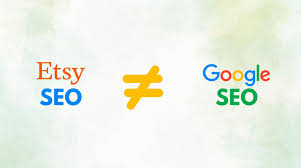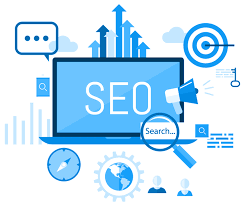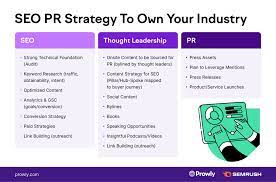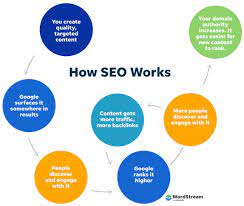Google SEO Optimization: A Guide to Boost Your Online Presence
Google SEO Optimization: A Guide to Boost Your Online Presence
Search Engine Optimization (SEO) is crucial for any website looking to rank higher on Google search results. With Google being the most popular search engine globally, mastering Google SEO optimization techniques can significantly enhance your online visibility and drive more organic traffic to your site.
Understanding Google’s Algorithm
Google’s algorithm is complex and constantly evolving. It takes into account numerous factors when determining the ranking of a website in search results. These factors include keywords, backlinks, content quality, user experience, and mobile-friendliness.
Key Google SEO Optimization Strategies
Keyword Research: Identify relevant keywords that your target audience is searching for and strategically incorporate them into your website content.
On-Page Optimization: Optimise meta tags, headings, URLs, and image alt text with relevant keywords to improve your website’s visibility to search engines.
Quality Content: Create high-quality, engaging content that provides value to your audience. Regularly update your content to keep it fresh and relevant.
Mobile-Friendly Design: Ensure that your website is responsive and mobile-friendly as Google prioritises mobile-friendly sites in its search results.
Backlink Building: Build high-quality backlinks from reputable websites to increase your site’s authority and credibility in the eyes of Google.
The Importance of Local SEO for Google
If you have a local business, optimising for local SEO is essential for improving your visibility in local search results. This includes creating a Google My Business profile, obtaining positive reviews, and ensuring consistent NAP (Name, Address, Phone Number) information across all online platforms.
The Role of Analytics in Google SEO Optimization
Analyse key metrics such as organic traffic, bounce rate, click-through rate (CTR), and keyword rankings using tools like Google Analytics and Google Search Console. These insights will help you track the effectiveness of your SEO efforts and make data-driven decisions to further optimise your website for better performance on Google.
In Conclusion
In conclusion, mastering Google SEO optimization is essential for improving your online presence and driving organic traffic to your website. By implementing the right strategies such as keyword research, on-page optimization, quality content creation, backlink building, local SEO tactics, and utilising analytics tools effectively, you can boost your rankings on Google and reach a wider audience online.
24 Essential Questions Answered on Mastering Google SEO: Costs, Strategies, and Tools for Optimising Your Online Presence
- How much does Google SEO optimization cost?
- Can you pay Google to improve your SEO?
- What does Google SEO cost?
- What are the 4 types of SEO?
- What is SEO for beginners?
- Is SEO free on Google?
- Is SEO better than Google ads?
- How do I optimize my website for Google SEO?
- How does Google optimize SEO?
- What is SEO and how it works?
- What is SEO in Google?
- How does Google SEO optimize?
- How can I improve my Google SEO?
- Is Google SEO difficult to learn?
- How do I SEO my website on Google?
- How do I rank 1 on Google SEO?
- How do I make SEO optimized?
- What 3 Google tools would you use for SEO?
- How do I optimize Google SEO?
- What are the 3 types of SEO optimizations?
- Does Google have an SEO tool?
- What is SEO optimization?
- What are the 7 types of SEO?
- What is better SEO or PPC?
How much does Google SEO optimization cost?
When it comes to Google SEO optimization, the cost can vary depending on several factors. There is no fixed price for SEO services as it is a bespoke solution tailored to each website’s specific needs and goals. Some businesses may opt for DIY SEO strategies that require minimal financial investment but significant time and effort. On the other hand, hiring professional SEO agencies or consultants can range from a few hundred to several thousand pounds per month, depending on the scope of work and level of expertise required. Ultimately, investing in Google SEO optimization is an essential aspect of digital marketing that can yield long-term benefits in terms of increased organic traffic, improved search engine rankings, and enhanced online visibility for your business.
Can you pay Google to improve your SEO?
It is a common misconception that paying Google directly can improve your SEO rankings. In reality, Google’s search results are determined algorithmically and are not influenced by payment. While Google offers advertising services like Google Ads that can increase your website’s visibility through paid ads, these do not directly impact your organic search rankings. Effective SEO involves implementing best practices such as keyword research, quality content creation, on-page optimization, and backlink building to improve your website’s visibility in organic search results over time.
What does Google SEO cost?
When it comes to Google SEO optimization, the cost can vary depending on various factors such as the size of your website, the competitiveness of your industry, and the scope of services required. While Google itself does not charge for organic search results, implementing effective SEO strategies often involves investing in resources like professional SEO services, content creation, website optimisation, and ongoing monitoring and adjustments. It’s important to view SEO as a long-term investment in your online presence rather than a one-time cost, as the benefits of improved visibility and organic traffic can lead to significant returns for your business over time.
What are the 4 types of SEO?
When it comes to Google SEO optimization, understanding the different types of SEO is crucial for implementing an effective strategy. The four main types of SEO include on-page SEO, off-page SEO, technical SEO, and local SEO. On-page SEO focuses on optimizing individual web pages with relevant keywords, meta tags, and quality content. Off-page SEO involves building backlinks from other reputable websites to improve domain authority. Technical SEO deals with website performance, site structure, and indexing issues to enhance overall user experience. Lastly, local SEO targets local search queries and aims to boost visibility for businesses within a specific geographic area. By incorporating these four types of SEO into your strategy, you can improve your website’s ranking on Google search results and attract more organic traffic.
What is SEO for beginners?
SEO for beginners is the practice of optimising your website to improve its visibility on search engines like Google. It involves various strategies such as keyword research, on-page optimisation, and building quality backlinks to enhance your website’s ranking in search results. For beginners, understanding the basics of SEO is crucial to attract organic traffic and reach a wider audience online. By learning how to create relevant content, utilise meta tags effectively, and improve user experience, beginners can lay a strong foundation for successful SEO practices that will help their websites thrive in the competitive digital landscape.
Is SEO free on Google?
When it comes to Google SEO optimization, one frequently asked question is, “Is SEO free on Google?” While it is true that you do not have to pay Google directly for organic search results, implementing effective SEO strategies does require investment in terms of time, effort, and resources. SEO involves various tactics such as keyword research, content creation, on-page optimization, and link building, all of which demand dedicated work to improve your website’s visibility and ranking on Google. While the cost of SEO implementation may vary depending on the scale and complexity of your strategy, the long-term benefits of organic traffic growth and improved online presence make it a worthwhile investment for any business looking to succeed in the digital landscape.
Is SEO better than Google ads?
When considering the effectiveness of SEO versus Google Ads, it’s important to understand that both strategies have their unique advantages and serve different purposes in digital marketing. SEO focuses on improving organic search visibility over time, leading to sustained traffic and brand credibility. On the other hand, Google Ads provide immediate visibility through paid placements but require ongoing investment. The best approach often involves a combination of both SEO and Google Ads to maximise online presence and achieve optimal results tailored to specific business goals. Ultimately, the choice between SEO and Google Ads depends on factors such as budget, timeline, target audience, and marketing objectives.
How do I optimize my website for Google SEO?
To optimize your website for Google SEO, start by conducting thorough keyword research to identify relevant search terms that your target audience is using. Incorporate these keywords strategically into your website content, meta tags, headings, and URLs. Focus on creating high-quality, engaging content that provides value to users and encourages them to stay on your site. Ensure that your website is mobile-friendly and offers a seamless user experience. Build high-quality backlinks from reputable websites to increase your site’s authority. Regularly monitor and analyse your website’s performance using tools like Google Analytics to track key metrics and make data-driven decisions for ongoing optimization efforts. By implementing these strategies effectively, you can improve your website’s visibility and ranking on Google search results.
How does Google optimize SEO?
When it comes to Google optimizing SEO, the search engine itself does not directly optimize websites for SEO. Instead, Google provides guidelines and best practices for webmasters and SEO professionals to follow in order to improve their website’s visibility in search results. By adhering to these guidelines, such as creating high-quality content, using relevant keywords, building authoritative backlinks, and ensuring a positive user experience, website owners can enhance their chances of ranking higher on Google. Ultimately, Google rewards websites that provide valuable and relevant information to users by ranking them higher in search results.
What is SEO and how it works?
Search Engine Optimization (SEO) is a fundamental digital marketing strategy aimed at improving a website’s visibility and ranking on search engine results pages, primarily Google. SEO works by optimising various aspects of a website, including content, keywords, meta tags, and backlinks, to make it more relevant and authoritative in the eyes of search engines. By aligning with search engine algorithms and user intent, SEO helps websites attract organic traffic and reach a wider audience online. Ultimately, SEO is about enhancing the user experience and providing valuable information to users while meeting the criteria set by search engines for higher rankings.
What is SEO in Google?
Search Engine Optimization (SEO) in Google refers to the process of improving a website’s visibility and ranking in Google search results. SEO involves various strategies and techniques aimed at meeting Google’s criteria for high-quality content, user experience, and relevance to specific search queries. By optimising elements such as keywords, meta tags, backlinks, and overall website structure, businesses can enhance their online presence and attract more organic traffic from users searching on Google. Understanding SEO in Google is essential for digital marketing success as it helps websites stand out in a competitive online landscape and drive valuable traffic that can lead to increased visibility and conversions.
How does Google SEO optimize?
To understand how Google SEO optimizes, it’s crucial to delve into the intricate workings of Google’s search algorithm. Google SEO optimization involves a multifaceted approach that includes keyword research, on-page optimization, quality content creation, mobile-friendly design, backlink building, and local SEO strategies. By strategically incorporating relevant keywords into website content, optimizing meta tags and headings, creating high-quality and engaging content, ensuring mobile responsiveness, building reputable backlinks, and focusing on local search visibility, websites can improve their rankings on Google search results. Additionally, leveraging analytics tools to track key metrics allows for continuous monitoring and refinement of SEO strategies to align with Google’s evolving ranking criteria.
How can I improve my Google SEO?
To improve your Google SEO, it is essential to focus on several key strategies. Firstly, conduct thorough keyword research to identify relevant terms that your target audience is searching for. Incorporate these keywords strategically into your website content, meta tags, and headings. Ensure that your website is mobile-friendly and provides a seamless user experience across all devices. Regularly update your content with high-quality, engaging material that adds value to your audience. Building high-quality backlinks from reputable websites can also boost your site’s credibility in the eyes of Google. Lastly, monitor and analyse key metrics using tools like Google Analytics to track the performance of your SEO efforts and make informed adjustments for continuous improvement.
Is Google SEO difficult to learn?
Understanding Google SEO can seem daunting at first, but it is not inherently difficult to learn. With dedication, patience, and a willingness to stay updated on the latest trends and algorithm changes, mastering Google SEO optimization is achievable. While the intricacies of SEO may require time and effort to grasp fully, there are plenty of resources available online, such as guides, tutorials, and forums, that can help individuals navigate the world of SEO effectively. By starting with the basics, gradually building knowledge and practical experience, anyone can develop a solid understanding of Google SEO and apply it successfully to improve their online presence.
How do I SEO my website on Google?
To optimise your website for Google SEO, start by conducting thorough keyword research to identify relevant keywords for your content. Ensure these keywords are strategically incorporated into your meta tags, headings, URLs, and content. Focus on creating high-quality, engaging content that provides value to your audience and regularly update it to keep it fresh. Make sure your website is mobile-friendly and responsive, as Google prioritises mobile-friendly sites. Build high-quality backlinks from reputable websites to increase your site’s authority. Utilise tools like Google Analytics and Google Search Console to track key metrics and make data-driven decisions to further enhance your website’s SEO performance on Google.
How do I rank 1 on Google SEO?
To rank 1 on Google SEO, it is essential to implement a comprehensive and strategic approach. Firstly, thorough keyword research is crucial to identify relevant keywords with high search volumes and low competition. Next, optimise your website’s on-page elements such as meta tags, headings, and content with these keywords. High-quality content that provides value to users is key, as Google prioritises websites that offer relevant and engaging information. Building high-quality backlinks from reputable websites also boosts your site’s authority in the eyes of Google. Regularly monitoring and adjusting your SEO strategies based on analytics data will help you track progress and make necessary improvements to increase your chances of ranking 1 on Google search results.
How do I make SEO optimized?
To make your website SEO optimized, start by conducting thorough keyword research to identify relevant keywords for your content. Ensure these keywords are strategically incorporated into your meta tags, headings, URLs, and content. Focus on creating high-quality, engaging content that provides value to your audience and is regularly updated. Optimise your website’s technical aspects such as site speed, mobile-friendliness, and internal linking structure. Building high-quality backlinks from reputable websites can also boost your site’s authority in the eyes of search engines. Regularly monitor and analyse your website’s performance using tools like Google Analytics to track progress and make necessary adjustments for continuous improvement in SEO optimization.
When it comes to Google SEO optimization, utilising the right tools can make a significant difference in improving your website’s visibility and performance. Three essential Google tools that are invaluable for SEO are Google Analytics, Google Search Console, and Google Keyword Planner. Google Analytics provides valuable insights into website traffic, user behaviour, and conversions, allowing you to track the effectiveness of your SEO efforts. Google Search Console helps monitor your site’s presence in search results, identify indexing issues, and submit sitemaps for better crawlability. Lastly, Google Keyword Planner assists in researching relevant keywords to target in your content strategy, helping you attract more organic traffic and enhance your search engine rankings. By leveraging these powerful tools effectively, you can enhance your SEO strategy and achieve better results on Google.
How do I optimize Google SEO?
To optimize Google SEO effectively, it is essential to follow a strategic approach that considers key factors such as keyword research, on-page optimization, quality content creation, mobile-friendliness, backlink building, and utilising analytics tools. Start by conducting thorough keyword research to identify relevant search terms that your target audience is using. Incorporate these keywords strategically into your website content, meta tags, and headings. Focus on creating high-quality and engaging content that provides value to users. Ensure that your website is mobile-friendly and responsive to cater to the increasing number of mobile users. Building high-quality backlinks from reputable websites can also boost your site’s credibility in the eyes of Google. Regularly monitor and analyse key metrics using tools like Google Analytics to track the performance of your SEO efforts and make informed decisions for continuous improvement. By following these steps diligently, you can optimise Google SEO effectively and improve your online visibility.
What are the 3 types of SEO optimizations?
When it comes to Google SEO optimization, there are three main types of strategies that businesses can implement to improve their online visibility. The first type is on-page SEO optimization, which involves enhancing elements within the website itself, such as meta tags, headings, and content, to make them more search engine friendly. The second type is off-page SEO optimization, which focuses on building external factors like backlinks from reputable sites to increase the website’s authority and credibility. Lastly, there is technical SEO optimization, which involves improving the technical aspects of a website, such as site speed, mobile-friendliness, and structured data markup, to ensure better indexing and crawling by search engines like Google. By incorporating all three types of SEO optimizations effectively, businesses can enhance their chances of ranking higher in Google search results and attracting more organic traffic to their websites.
When it comes to Google SEO optimization, a frequently asked question is, “Does Google have an SEO tool?” While Google does not offer a specific tool dedicated to SEO, it provides various free tools that can assist website owners in improving their search engine visibility. Tools such as Google Search Console, Google Analytics, and Google PageSpeed Insights offer valuable insights into website performance, user behaviour, and technical aspects that can help optimise your site for better rankings on Google search results. Leveraging these tools effectively can enhance your SEO efforts and boost your online presence.
What is SEO optimization?
SEO optimization, also known as Search Engine Optimization, is the process of enhancing a website’s visibility and ranking on search engine results pages. It involves implementing various strategies and techniques to improve the website’s relevance and authority in the eyes of search engines like Google. By optimising factors such as keywords, content quality, backlinks, and user experience, SEO optimization helps websites attract more organic traffic and reach a wider audience online. Ultimately, the goal of SEO optimization is to increase a website’s visibility, drive more qualified traffic, and ultimately improve its online presence and performance in search engine results.
What are the 7 types of SEO?
When it comes to Google SEO optimization, understanding the different types of SEO is crucial for implementing a comprehensive strategy. The 7 types of SEO include on-page SEO, off-page SEO, technical SEO, local SEO, mobile SEO, e-commerce SEO, and voice search SEO. Each type focuses on specific aspects of website optimization to improve visibility and rankings on search engines like Google. By incorporating these various types of SEO techniques into your digital marketing efforts, you can enhance your online presence and attract more organic traffic to your website.
What is better SEO or PPC?
When considering the choice between SEO (Search Engine Optimization) and PPC (Pay-Per-Click) for your digital marketing strategy, it’s important to understand the differences and benefits of each. SEO focuses on improving your website’s organic visibility in search engine results over time, while PPC involves paying for ads that appear at the top of search results instantly. SEO is a long-term investment that can drive consistent, sustainable traffic to your site, whereas PPC offers immediate visibility but requires ongoing budget allocation. The decision between SEO and PPC ultimately depends on your specific goals, budget, and timeline for seeing results. A well-rounded digital marketing strategy may include a combination of both SEO and PPC to maximise your online presence and reach your target audience effectively.







